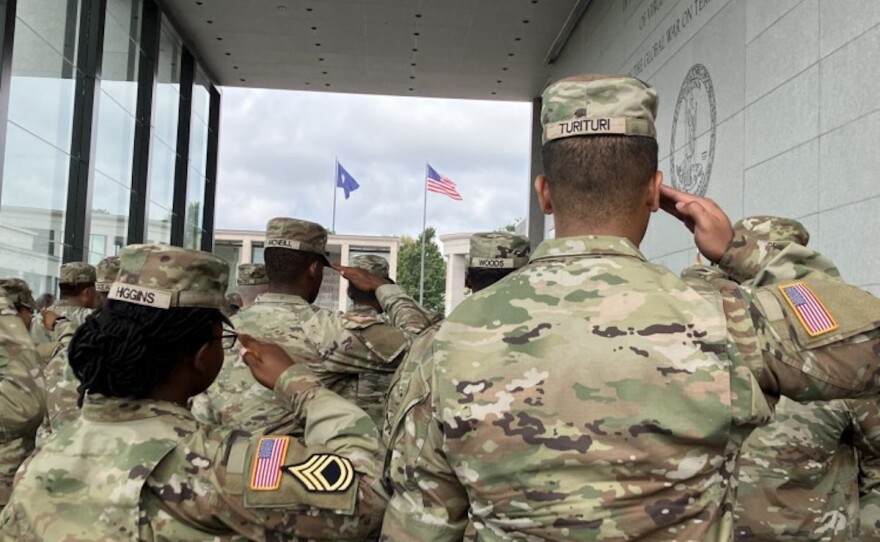A new book examines the physical and psychological effects military service has on veterans. And it highlights some of the country’s failures to serve members when they return to civilian life.
Morning Edition host Phil Liles spoke with co-author Suzanne Gordon about the new book, "Our Veterans: Winners, Losers, Friends, and Enemies and the New Terrain of Veterans Affairs.”
The following has been edited for length and clarity.
Liles: I love the title. I certainly want to hear how you came up with the title.
Gordon: I've been writing and researching healthcare for well over 30 years, and wrote a book called "Wounds of War," about how [Veterans Affairs] delivers health and healing to the nation's veterans. I immersed myself in the VA system for close to a decade to write that book. And I was very impressed by the quality of care and the innovations that were made to help veterans — and really all of us, because you know, you're in a healthcare system that serves veterans, you hang around with a lot of veterans and get to understand their problems, and the politics of Veterans Affairs.
So, it just all came together about the broader role of veterans in American society and how they're served, how they're not served, and what promises we make and what promises we keep.
What is the biggest challenge that veterans face today in terms of their health services?
Well, there's just rampant efforts to privatize the nation's largest health care system. So, the pharmaceutical industry is very involved in trying to privatize the VA. There is a real major assault — really a relentless and multi-tentacled assault — on veterans, healthcare, veterans’ benefits.
What do you hope that the reader will take away from this book?
Well, I hope the reader will take away that, whatever you think of whatever current conflict we're in, veterans and active-duty service members have volunteered to serve their country — and to serve all of us.
We have to do more than give people perfunctory 'Thank you for their services.' We have to give them the benefits that they need. And we have to fight the voices, like the commissioner of Department of Veterans Services in Virginia, that claims PTSD doesn't really exist, and that veterans don't deserve the compensation. And that they should be independent.
I think we need to really fund the services that we promised veterans, and I think the military needs to deal with cleaning up its act. It's a very reckless employer. I mean, clean up military housing, stop sexual assault, clean up your bases, provide people with equipment they need, like helmets. They gave service members faulty helmets to protect them in Iraq and Afghanistan. Spend the money on the helmets. I mean, we have to fulfill our promise to veterans and pay the full cost of war.
The PACT Act is a very good step in the right direction. But now, people need to fund the VA, so they have the folks to process claims in the Veterans Benefits Administration and the health care staff. They need to take care of these veterans.
We have the money. It's just that we don't have the will.
"Our veterans," I think, asks people to have that will. And the other thing I think we ask is that, veterans don't just live in a little veteran-only bubble. They have families and friends, and communities and those communities deserve services like health care, free health care and education.
We should really be expanding, not contracting, services for veterans — and also expanding these services for veterans’ communities and families, and for the nation as a whole.












